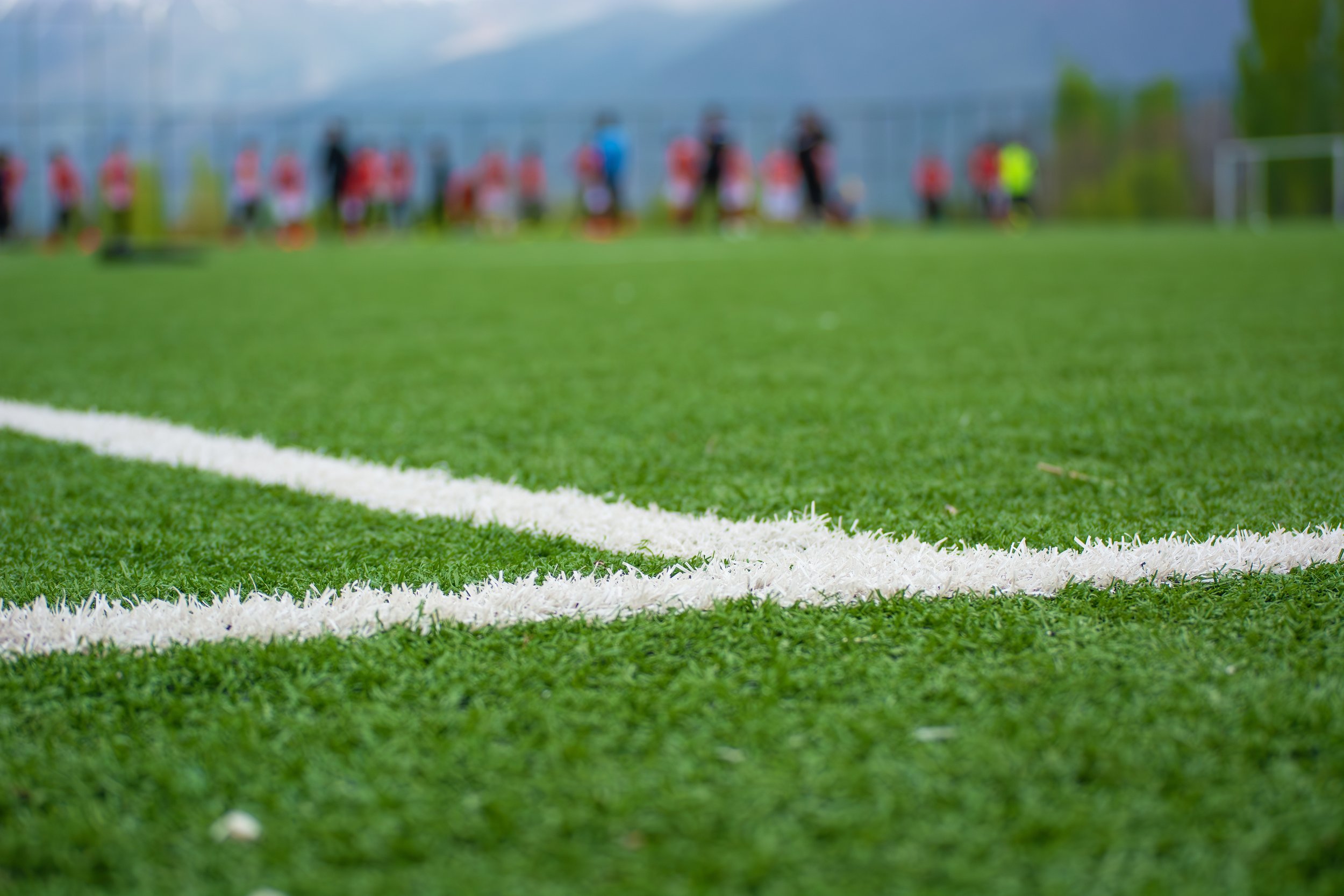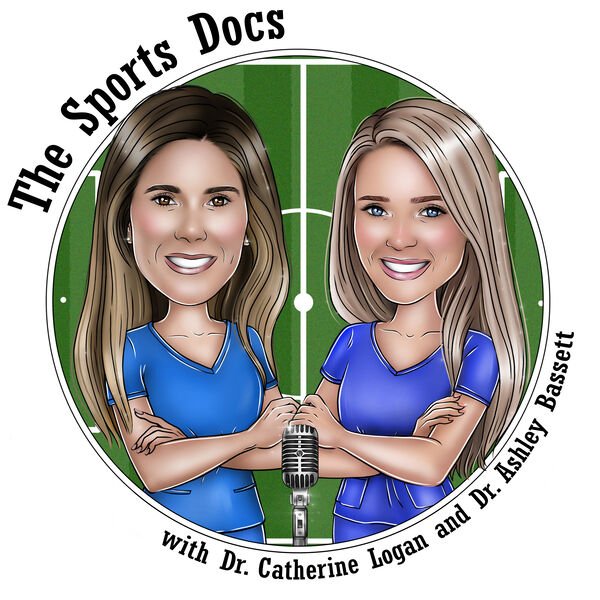
The Sports Docs Podcast
Join orthopedic sports surgeons, Dr. Catherine Logan & Dr. Ashley Bassett, as they chat about the most recent developments in sports medicine and dissect through all the noise.

The Sports Docs – Dr. Logan & Dr. Bassett – are friends & former co-residents from the Harvard Combined Orthopaedic Residency Program, who went onto esteemed sports medicine fellowships at The Steadman Clinic and The Rothman Institute, respectively.
Sports medicine is a constantly evolving field, with hundreds of new articles published each month on the topic. This ever-growing wealth of information can make it challenging to stay updated on the newest approaches and techniques, and to know which data should actually change your practice.
On each episode of The Sports Docs podcast, the hosts will tackle a specific injury – from ACL tears to shoulder instability – and review the top research from various high-impact journals that month, including The American Journal of Sports Medicine, Arthroscopy: The Journal of Arthroscopic and Related Surgery, Sports Health, Journal of Shoulder and Elbow Surgeons, and more.
The Sports Docs will also be joined by experts in the field of sports medicine – orthopedic surgeons, nonoperative sports medicine specialists, athletes, physical therapists, athletic trainers and others – to provide a fresh and well-rounded perspective based on their unique experiences.
Latest Episodes
Today, we’re talking about the use of tranexamic acid or “TXA” for rotator cuff repair surgery. First, what is TXA? If you’re not an arthroplasty surgeon or a traumatologist, you may not be as familiar with this medication. TXA is drug that inhibits the enzymatic breakdown of fibrin blood clots, also known as fibrinolysis. By doing this, TXA stabilizes the thrombi, or blood clots, and thus decreases bleeding.
Today’s Ask The Sports Docs is going to focus on a question we get asked a lot: What can I take supplement-wise to improve my healing and outcome after an orthopedic injury or surgery?
As we reflect on an incredible year of growth for our podcast, we’d like to take a moment to thank our amazing listeners, guests and supporters for making this podcast such a success!
Our podcast has been downloaded in over 60 countries, is in the top 25% of @buzzsprout podcasts and is again ranked in the top sports medicine podcasts 📈
🎙️ We are very excited to see what 2025 has in store!
As we reflect on an incredible year of growth for our podcast, we’d like to take a moment to thank our amazing listeners, guests and supporters for making this podcast such a success!
Our conversation picks back up with an article published in the December 2020 issue of Current Reviews in Musculoskeletal Medicine titled “Surgical Management of Massive Irreparable Cuff Tears: Superior Capsular Reconstruction.”
On today’s episode we’re focusing on challenging rotator cuff pathology with Dr. Patrick Denard, an orthopedic shoulder surgeon at the Oregon Shoulder Institute. We have some great articles for you that contribute well to our conversation on the treatment options for massive reparable, as well as irreparable, rotator cuff injuries.
In this episode, we’re going to continue our discussion with Dr. Aaron Krych and focus on surgical advancements to address meniscus extrusion and optimize postoperative outcomes for patients.
On today’s episode we’re focusing on medial meniscus root repairs with Dr. Aaron Krych, Chair of Orthopedic Surgery and Professor of Orthopedic Surgery at The Mayo Clinic in Rochester, Minnesota. We have some great articles for you that contribute well to our conversation on the optimal treatment of medial meniscus root tears, including recent advancements in surgical technique to optimize outcomes.
We’re continuing with our favorite topic today – ACL tears – but today’s episode is going to focus on risk factors for ACL tears. Specifically, which of these risk factors can we modify to lessen the chance of sustaining ACL tear and how do we decrease that risk.











![✨NEW episode is LIVE!✨
We chat with Dr Aaron Krych [ @ajkrych ] all about advances in medial meniscus root repair. Dr. Krych is the Chair of Orthopedic Surgery and a Professor of Orthopedic Surgery at the Mayo Clinic [ @mayoclinic ]. He is also the](https://images.squarespace-cdn.com/content/v1/6467a6d30b89e459018f4536/1733147506901-3D2W3Y210X5TTQFZJBAR/image-asset.jpeg)







![✨NEW episode is LIVE!✨
We continue our chat with Dr. Rachel Frank [ @rachelfrankmd ] — an Associate Professor of Orthopaedic Surgery and Director of the Joint Preservation Program at the University of Colorado School of Medicine [ @cuboulder ]](https://images.squarespace-cdn.com/content/v1/6467a6d30b89e459018f4536/1727701890993-35YX5U2DVOPW3EDC9DS5/image-asset.jpeg)
![✨NEW episode is LIVE!✨
We chat with Dr. Rachel Frank all about concussions and emergency action planning. A very timely topic given the start of fall sports!
Dr. Frank [ @rachelfrankmd ] is an Associate Professor of Orthopaedic Surgery and Director](https://images.squarespace-cdn.com/content/v1/6467a6d30b89e459018f4536/1727095764635-LYRYX9FDVINLIF91LKW4/image-asset.jpeg)
![✨NEW episode is LIVE!✨
We chat with Dr. Brian Cole [ @brianjcolemd ] all about rotator cuff repair augmentation. Dr. Cole is a Professor of Orthopedic Surgery and Chair of the Department of Orthopedic Surgery at Rush University Medical Center [ @mor](https://images.squarespace-cdn.com/content/v1/6467a6d30b89e459018f4536/1726492292132-BPNXTEAZ240YQ46R0A1W/image-asset.jpeg)
![✨ NEW episode is LIVE! ✨
We’re coming to you again from the AOSSM [ @aossm1972 ] 2024 Annual Meeting in Denver, Colorado! Over these eight episodes, we explore some of the hottest topics in sports medicine with experts at the AOSSM Annual Meet](https://images.squarespace-cdn.com/content/v1/6467a6d30b89e459018f4536/1725885659851-BR7DF2BQ2M7OCRVQ23WY/image-asset.jpeg)